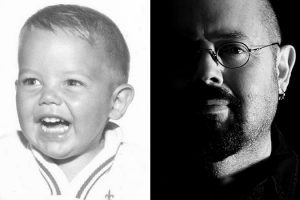traditional publishing
I’m writing this at 11:15 p.m. in a hotel room in Dallas, in a bed that is not my own. I meant to be asleep 15 minutes ago, and then I realized that—even though I’d written this on my planner 3 days this week!—I forgot to write today’s post.
It’s been a year of every type of emotion imaginable. A year of so much writing. So much traveling. So much book touring (almost non-stop) for Everyone Knows You Go Home since it came out in March. So little is actually in our hands when a book releases, so I told myself earlier this year that I would do everything I could do for it. For me that translated to doing events. Meeting readers. Crashing at friends’ and family’s places all across the country and sometimes, oftentimes, being home no more than a week or two at a time.
This is the dream, right?
Kinda.
Things that make it absolutely beyond worth it for this introverted homebody who would rather be writing in bed:
The young mom in California who brought her young son to my reading because he’d never met an author before…and getting a note from her the next day telling me how her eyes had teared up hearing her boy telling her grandfather all about it later that evening.
Having readers ask me to make their book out to their mom. A book that I wrote as a gift to my mom…becomes a gift to theirs.
Standing-room only crowds full of loved ones.
Standing-room only crowds full of strangers.
Three-person crowds on a cold and rainy day—and pulling up a chair and just chatting.
Hearing my literary hero (the author who inspired me to write fiction!) introduce my book before a reading using words like masterful and magical (how is this real life?!).
Read MoreTis the season, right? There are plenty of great gift lists around on what you can give the writers in your life, like this one from Modern Mrs. Darcy. And an aptly named bottle is generally welcome.
But there are other gifts, and I’d like to recommend that this December, you think about a very important writer in your life: you.
What gifts are important to give yourself, as a writer?
First of all, time. There are two ways in which time is the most important gift you can give yourself as a writer. One is to make sure that you have time to write, blocked off with intent and purpose. In my life, that’s a once-a-week block of babysitting, where my kids are taken care of and no other errands or responsibilities are allowed to intrude. For others, it might be a week-long retreat, a daily morning ritual, or nearly anything else. But it’s important to make sure you have it. Wherever you are in your career, whatever your process may be, it’s important that you write.
The other way in which you need to give yourself time: during a draft. Don’t just write something and call it done. That is not a gift. The gift is to chew on it, turn it over, dig through it. To set it aside and come back to it as a stranger. It’s possible to write a book very quickly — like during NaNoWriMo, when speed is the point — but even if you can write a good book quickly, you can write a better book slowly. Write in haste, edit at leisure. Let yourself have time to make it the best book it can be.
Also: company. While it isn’t always easy to find other writers to share the journey with you, I still think it’s incredibly important. And while it sometimes seems like writers who’ve gone through MFA programs have the advantage in this regard, I can tell you this: only a few of the writers I regularly rely on for critique, company, sympathy and support are from my MFA program. Far more of them I’ve met in other ways. Yes, mostly on the internet. Online groups like Writer Unboxed itself (yay!) have been an incredible resource, as well as conferences that might provide an in-person introduction but then go on to become close working relationships over Facebook, e-mail and Skype. Don’t think of it as networking in the sense of “oh, I guess networking is good for my career” — think of it as making friends. Friends who are also writers. They are gifts, every last one.
Read MoreAuthors have many things to watch out for when evaluating a publishing deal, but one of the most common—and most serious—dangers is something the author doesn’t see: the vital clauses and protections that are often missing from “short-form” publishing contracts.
Most authors look at standard publishing contracts (which can easily run from ten to twenty pages, or even longer) with a combination of confusion and concern. For those not versed in legalese (or, more precisely, Publisher-ese) standard contract terms can range from “complex” to “might as well be written in Sanskrit.”
Because of this, some authors see a three-page form and think “hey, this is great!” and “finally, a contract that makes sense!”
Beware…that way be dragons.
Publishing contracts are usually long because they deal with many important legal issues. (Note: anthology contracts are often short, because of the rights involved—this post addresses contracts for novel-length works only.)
“Copyright” is actually a bundle of rights, each of which needs to be addressed in some way in the publishing contract—if only to state that the ones not expressly granted to the publisher stay with the author.
Failure to deal with all of the relevant issues creates ambiguities, and in short-form deals, many of those ambiguities cut in the publisher’s favor.
I’ve recently seen a number of “short-form contracts” that claim to offer authors a “better deal” than “old, traditional, complicated forms.”
Again: beware.
Short form contracts do often include quite a few important clauses, such as grants of rights, royalty statements (and royalty levels), and when the publisher has to send royalty checks. However, short contracts often omit other critical provisions. When problems arise, the author goes to the contract, only to discover the “friendly form” doesn’t address the issue (or, worse, it does, but the publisher prevails).
Here’s a list of just a few important provisions short-form contracts often don’t include:
Read MoreMy freshman year in college, I lived in a large dormitory. It was a tough year, because I was bullied relentlessly by two other freshmen, one of whom was my roommate. While his assaults were verbal, the other guy, who lived down the hall, was far more threatening to me, with the hint of violence always looming behind his taunts. This guy – I’ll call him Jake – was a street-hardened bully from a rough part of northern Indiana, and I knew I didn’t stand a chance against him in a fight.
So I took the abuse. For months on end.
I found solace in my studies, attending what was then the largest music school in the world, so I could disappear into my musical world for most of the day. But eventually, I’d always have to go home.
One night I returned to my dorm to find Jake standing in front of my door, barring my entrance. He greeted me with the obscene nickname he and his buddy had come up with for me, which they found every possible occasion to use, often humiliating me in front of my friends and classmates. As I approached, he bobbed and lunged at me, daring me to try to get past him and open the door.
For some reason, on that particular day, I’d had enough.
Without thinking, I grabbed Jake’s head in both hands, and slammed his head against the door. Then we stood, staring at each other. Jake was speechless, his wide-eyed expression making me think he was probably feeling more surprise than pain. Whatever the combination, it did the trick. After a long moment, Jake walked away without a word.
But a weird thing happened once I got inside my room. In what should a been a triumphant Hollywood moment, I instead found myself feeling nauseated. While I’d been in the inevitable scrape or two as a teen, this was by far the most violent move I’d ever made against somebody. And now the thought of it was making me feel physically ill. And what was even weirder: I felt incredibly guilty. Even though that punk completely deserved what he got.
I’d never been a very aggressive or violent guy. By nature, I’m conflict-averse. (This is perhaps not a great trait for a fiction writer, since conflict is our stock-in-trade. But I digress…) Now I had learned in a visceral way that violence really just wasn’t in my nature. This was a surprising revelation to me, given how much I liked violent, action-packed movies and books. It was quite confounding: here was this bully who had tormented me for months, and now I found myself debating whether to go find the guy and apologize? Seriously, what the hell was going on?
Read MoreKudzu, by Katie Ashdown
It’s been more than six years since my debut novel, The Kitchen Daughter, came out. Most days that seems like an eternity. Publishing is slow and merciless, like kudzu: in a race against a turtle it would lose every time, but if you gave it a trellis tall enough it would grow to blot out the sun. The Kitchen Daughter is the only novel I’ve published so far under my own name, and it’s entirely possible it’ll be the last.
When you finally break through into traditional publishing, the world is full of possibilities. Disappointment almost inevitably follows. This is, believe it or not, not always a bad thing. The most you can hope for is that the possibilities are many and magical, and the disappointments are small and fleeting. The book becomes a New York Times bestseller or it doesn’t; you earn out your advance or you don’t; you’re offered the chance to publish again or you’re not. But it isn’t as if there are only two possibilities, success or failure. The best and worst thing about publishing is that you can and probably will live in the space between those two poles for years, even decades.
And so, six years. Six years in publishing is forever. The Kitchen Daughter will get no more newspaper or magazine reviews. You won’t find it on the shelves of your bookstore. It isn’t included in roundups of 5 Food Novels That Make Your Mouth Water or Six Novels With Narrators On the Spectrum Whose Worlds You Need to See — not because it doesn’t fit, and not because it isn’t good, but because it isn’t new. And publishing coverage is about the new. (See above: kudzu.)
But you know who doesn’t care about whether or not publishing has moved on? Readers.
I got an email the other day from a man requesting a signed bookplate for his wife, who has been reading The Kitchen Daughter during her recovery from breast cancer. Once a year, I hear from high school students who are reading it as an assignment for their Honors English class. I see messages on Twitter and Facebook, not necessarily intended for me at all, in which readers on the autism spectrum recommend the book to each other or to loved ones. (Those sometimes make me cry.) Even out of print, the book lives on in thousands of copies in thousands of places: on readers’ nightstands and bookshelves, in Little Free Libraries, for sale at used bookstores and in church basements, and of course, eternally available in e-book with just a few clicks. (I still get semi-annual royalty checks from the sale of Croquembouche, a 99-cent e-short story, and I don’t mind telling you that I laugh at how small they are and then I cash them anyway.)
Read More




















